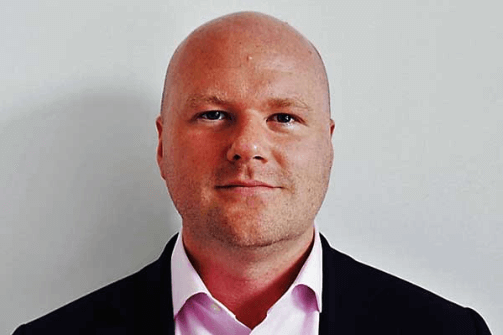January is the time most of us take stock and implement career changes. Throughout the festive season, we have relaxed, spoken to friends and family (at home and remotely) and questioned the real value of what we do. Often there is a hankering for something more fulfilling and emotionally rewarding. The big question is this: how do I change my career to utilise my skills, keep my seniority and add value to society?

“A big ask indeed. For me, the answer came in the shape of a chance conversation.
I left school at 16. I had an entrepreneurial spirit and, due to my father being ill, I felt a responsibility to step up to the plate with the family business. I saw a way of rejuvenating the family’s travel agency with new technology and catering to people’s changing travel dreams. It was exciting and successful – and then the terror attacks of 9/11 and those that followed shook the travel market to its core.
Fate took a hand when I bumped into someone from Serco, who told me that there was a contract management opportunity in their Forensic Medical Services division. As part of the induction I spent time with the police and in other elements of the justice service. That was me hooked. I began to see how people could easily fall between the care cracks and into crime.
I worked hard and took every development opportunity I could, including attending conferences. It was at one of these that I first heard Health in Justice Medical Director Sarah Bromley speak about the Wellbeing Wheel – an innovative tool that charts the patient’s needs and progress in five key areas of health and rehabilitation. It was at this point I realised the profound effect healthcare could have on prisoners’ futures. So, when Service Director Ross Dowsett, who I’d also met at conference, called me to offer me an interim Head of Healthcare role I grabbed it with both hands, even though it might have appeared to be a sideways move.”
He continued:
“Practice Plus Group’s training and mentoring programmes are second to none, so I made the most of the organisation’s commitment. I progressed to the role of Deputy and then Regional Manager in just over two years and by 2020 I was Regional Director for the West, responsible for 25 prisons and 695 colleagues.
Fast-forward four years and the pandemic hit, testing all had our organisational abilities to the full. Whilst this was undoubtedly the most challenging time in my career, I feel it helped further strengthen my abilities as a leader. Also nothing spurs you on quite like the thought of helping to keep our patients and colleagues safe and well: there is a tremendous sense of camaraderie within Health in Justice.
Now I have been appointed as Director for the whole division, with a team of 1,480 colleagues. We support thousands of prisoners in 47 prisons across the UK and those numbers are set to grow. While we need qualified clinicians, we also need business and operational managers who have a real thirst for making a difference – skilled managers who see that people’s lives can change for the better and who want to be a part of that change, even though they may not, to date, have been involved in the caring professions.
If you have solid experience in stakeholder, performance and budget management and if you are empathetic, people-focused and want to make a difference, 2021 could change your life – and the lives of our vulnerable patients.”

